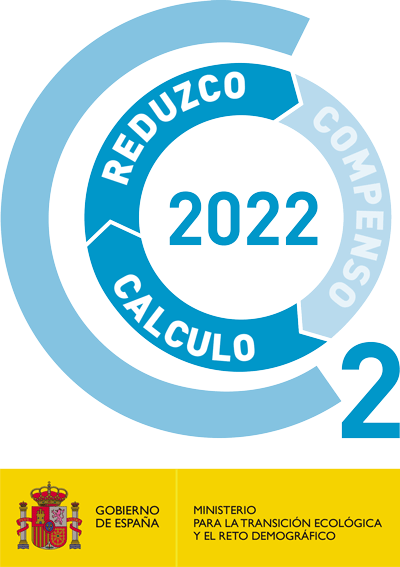Selling a property in Ibiza? This guide will cover all the info you need to know including taxes, costs, and some very useful tips!
Our detailed guide on the property selling procedure has been written in a list format with a few links and helpful tips for your personal seller’s journey. This easy-to-use guide can be kept for your reference each step of the way, and any extra personal advice can be sourced from one of our friendly team, who have inevitably been through the selling process many times before.
Taxes and Costs when selling real estate in Ibiza
- Municipal Capital Gains Tax
- Personal Taxes/ Income Tax
- Brokerage/ Agency fees
- Attorney Fees
- Mortgage cancellation fees, if any
Besides the payment of a Municipal Capital Gains Tax, the sale of a property will also require the seller to submit and pay Personal Income Tax on the gains of the sale.
Municipal Capital Gains Tax (Plusvalía Municipal)
‘Municipal Capital Gains Tax’ must be paid to the municipality where the urban land of the dwelling is located every time an urban property is conveyed (whether it be a house, garage, business premise or storage facility, etc.).
It is levied on the increase in the value of the urban land in which the property resides, and is calculated over the period in which the seller has owned the house or urban property for up to a maximum of twenty years, after which the tax is no longer applicable.
The tax is calculated based on the increased value of the land on which the property is built according to the Land Registry. The amount of tax due will depend on how long the seller has owned the property since the last change of hands. The percentage and amount to be paid will be higher the longer the seller has owned the property (up to the twenty-year threshold, as mentioned above).
The rate is calculated based on the "catastral value" of the land indicated in the last receipt, and is set differently by each municipality town hall, ranging from a minimum of 5% to a maximum of 30% on the gain in catastral value from the original purchase date to the selling date.
The law states that it is the seller who must pay this tax in the case of the sale of a dwelling.
Personal Income Tax
With the sale of a property, the seller must pay personal income tax in respect of the capital gains made by the sale within 4 months after signing the public sales-purchase deed, before the notary by means of the pertinent tax return. The gain or loss is calculated as the difference between the acquisition value and the current conveyance value, minus corresponding purchase and maintenance costs.
Tax Rates for Fiscal Residents:
- 19% on gains up to 6,000 €
- 21% on gains between 6,000.01 € and 50,000 €
- 23% on gains over 50,000.01 €.
Tax Rates for Fiscal Non-Residents:
If the seller is non-resident, the tax is a flat rate of 19% on the capital gain from the sale of the property. Additionally, the purchaser (whether resident or not) is obliged to withhold 3% of the agreed consideration which is to be paid to the Tax Agency within one month of the purchase date.
Non-Resident sellers need to be aware of the international double taxation agreement which exists between Spain and other EU countries. Any income tax on the gains of the sale of a property already paid in Spain can be deducted from tax due in the seller’s country of residence.
Other Expenses Arising From The Sale of a Property
- Attorney Fees. Approximately 1% of the sales price, to be paid by whoever solicits the legal advice.
- Agency Fees. Paid by the seller unless otherwise agreed. The agent’s commission varies between 4% and 6% of the final sales price (excluding VAT), although the standard in Ibiza is 5%.
Summary Of The Responsibilities Of The Seller
The following is a summary of the information required from the seller in preparation of the signature of the title deed (and ideally already in preparation for placing the property for sale, so that potential buyers can have quick answers to questions related to the property’s documentation).
Documents required for signing before the notary:
- Original of the personal ID card or passport
- Original of the NIE (foreign resident/work permit)
- The original of the title deed
- In the case of newly built constructions, the New Building Registration Deed
- Energy performance certificate [this certificate was made mandatory in 2013. The law requires you to have this document already before you offer your property for sale (or long term rent) – cost varies between 100 – 500€, depending on the size of your property]
- Information on the mortgage, if any
Recommended but not mandatory:
- Municipal building permit
- Municipal certification of end of works
- Certificate of occupancy (Cédula de Habitabilidad)
- Last receipt of the IBI
- Most recent utility invoices: electric power, water, telephone, etc.
Phases of the Sale/Purchase Process
There are three notable phases when selling a home in Ibiza. Negotiation and Agreement, The Private Contract and Deposit Payment, and finally, The Sale Purchase Deed.
Negotiation and Agreement
Once a buyer has shown interest in acquiring a property, the negotiation process with the seller can begin. As your real estate agent, we would endeavour at this stage to help both parties fully reach a suitable agreement on the sale price. Once an agreement is reached, both parties can confirm the terms in writing, and the task of drawing up the official finalised contract can commence.
The Private Contract and Deposit Payment
This next stage involves the initial private document and deposit payment. This stage is not necessarily mandatory and occasionally both parties may prefer to sign the ‘Sale Purchase Deed’ directly as the first drawing of a contract. However, in most cases, it is advisable to sign a (prior) private agreement that can be drawn up with the help of the property agency’s legal service, or by the individual legal representatives of the clients. The aim is to make the agreement legally binding, with peace of mind and security for both parties, until the public deed can be signed before a notary.
Here there are three main types of Private Contract and Deposit Payment options:
1) Private Purchase Contract
The ‘Private Purchase Contract’ is where the seller agrees to deliver the property and the buyer agrees to pay a certain price for it. The buyer may pay the seller an agreed amount of money upon the signature of this private contract as a deposit. This payment is otherwise often referred to as a down payment, good faith deposit, or earnest money.
Once the agreement and contract have been signed, both parties are under obligation to respect the contract in the agreed terms and conditions. Infringement of this contract by either party entitles the other to choose between demanding the fulfilment of the contract on its own terms, or unilateral termination of the same, with the right to compensation for loss and damage.
2) Earnest Money Contract
The second private contract and deposit payment may be known as an ‘Earnest Money Contract’ which is a sales contract that includes a ‘pledge agreement’, where a partial amount (generally 10%), is delivered, referring to a deposit.
The definition of this amount as a security deposit (arras penitenciales, in Spanish) enables either party to freely withdraw from the contract. However, if the buyer withdraws, the amount paid as a security deposit may be retained by the seller. On the other hand, if the seller withdraws, the purchaser will be entitled to receive double the security deposit paid (the full deposit returned, plus the same again as a penalty).
3) Purchase Option Contract
Lastly, the ‘Purchase Option Contract’ is a private contract where the seller grants the purchaser the right to decide whether or not to enter into the final ‘Sales Purchase Deed’ within a certain time and under certain conditions.
If the purchaser decides not to exercise the option, the amount paid as the option premium deposit will be forfeited. If the grantor-seller refuses to sell on the agreed terms, the grantee-purchaser may choose between demanding fulfillment of the contract on its own terms or requesting termination of the same with the right to compensation for loss and damage.
In all these cases a private contract can take place remotely, by digital means, or by postal mail. All the negotiated terms, the price, the deadline for signature before a notary, a description of the dwelling including furniture and appliances, the responsibilities, and the expenses deriving from the transaction (including the agency’s fee) are included within this private document.
The Sale-Purchase Deed
The final signature of the deed of sale takes place before a notary of Ibiza in the presence of all parties or their legal representatives. Payment of the full agreed price, from which the down payment is deducted, takes place at this time.
Purchasers have the right to choose their notary since they bear the costs deriving from the formalisation of the title deed.
The rights and duties of ownership of the property covered by the agreement are transferred to the purchaser on the signature of the deed.
General FAQs and Useful Tips
Is now a good time to sell your Ibiza Property?
In general, and looking at historic data, it is safe to say that since the 90’s the property market of the Balearic Islands is one of the best-performing markets in Europe, if not globally. Economic Crisis and Global Pandemics have not yet been able to make a significant dent in this real estate market powerhouse, especially in comparison to its somewhat more volatile mainland counterpart. To get the most up-to-date facts and figures about Ibiza’s Real Estate Market, check out our "Ibiza & Balearic Islands Real Estate Market Report 2022 & Forecast 2023".
How to choose an estate agent in Ibiza and do you really need one?
With hundreds and hundreds of real estate agencies operating on such a small island, it can be overwhelming to know which one to entrust the promotion of your property. A good place to start is to speak to those around you who have recently worked with a real estate agency in Ibiza, and to get recommendations. You should also back this recommendation up by doing your own online research and see which agencies come up in the top results of a Google search, checking out their sites and most importantly their client’s reviews, which you can usually find on a company’s Facebook or Google Reviews page. Another useful tip is to look out for agencies who belong to a professional body, in Ibiza this would be for example PIMEEF and the APIBIZA. Once you’ve narrowed your options down to a handful, contact them and ideally make an appointment at their physical offices to get a real feel for their market placement, work energy and to see if you connect with them on a more personal level too.
Next, ask how much their fees are and to see an example of a standard "Sales Order/Mandate" that you would be signing with them, to make sure all the fees, costs and general agreements are clearly stated and acceptable to you.
Should you market your property with various agencies or just one? Both options have positives and negatives; for a more detailed analysis read our article on "Why sign and exclusive mandate with Prestige".
Do you need an Agent to sell your property?
You might wonder if you even need an estate agent to sell your Ibiza property – and the answer is: No, you don’t – but you will wish you did. In all honesty, nothing stops you from putting up a sales sign and listing your property in online portals such as Fotocasa and Idealista yourself. If you have the time, energy and patience to deal with enquiries, viewings and offers yourself, then why not!? However, working with a professional real estate agency that has the right skills, knowledge and infrastructure will definitely make the whole procedure a lot more stress-free for you and your family. Need more convincing? Check out our article here: "15 Great reasons to sell your property with Prestige Properties".
Find a Solicitor in Ibiza who speaks your language
Even though it will usually be the buyer who will hire legal advice to perform due diligence before purchasing a property; it might be also in your interest to hire a lawyer who speaks your language who can assist you to oversee the sale and advise you on tax issues etc. Here are links to lists of Ibiza-based lawyers that speak a foreign language:
Have your documentation Prepared
As mentioned above, having your documentation in order will ensure that things will run smooth and fast, with no unpleasant surprises neither for the buyer nor yourself.
Ideally you will have:
- The Title Deeds to the property
- Cédula de Habitabilidad (Valid)
- Licencia o Final de Obra
- Receipts for the local municipal property tax (impuesto sobre bienes inmuebles or IBI)
- Copies of utility bills
- Details of the community statutes (for apartments and gated communities)
- A list of any items of furniture etc which will be included in the sale
- Your residencia card if you have residency status or NIE
How to sell your home faster than the average
Did you know that the average time-to-sell in Ibiza is around 10 months?
To reduce this to a more sensible average, here are the top 4 things you can do:
- (un)Dress the home – remove all personal items, declutter and leave it as minimalistic as possible; add mirrors and plants; redecorate in neutral colours; have it as light as possible; remove any signs of pets or sources of unpleasant smells.
- Presentation is Key – Market your property well: have the best presentation by taking the best possible photos (or hiring an agency with great marketing skills) to promote your property in its best light.
- Realistic Pricing – Heed the recommendations of professional valuations (more objective) and be accepting of what the market is willing to offer. If you want things to move faster and not drag out endlessly, you might have to accept an offer that is lower than what you had originally hoped for.
- Come Prepared – Have all the necessary documents prepared to make life easy for prospective buyers and their legal counsels. When the right buyer comes, a deal can close in a matter of hours if everything is well prepared, transparent and clear.
—
We hope this guide has been useful; for more case specific questions & answers please do not hesitate to contact your personally assigned Prestige Listing Agent!
To find out more about the buyer’s expenses and responsibilities – read our article:




